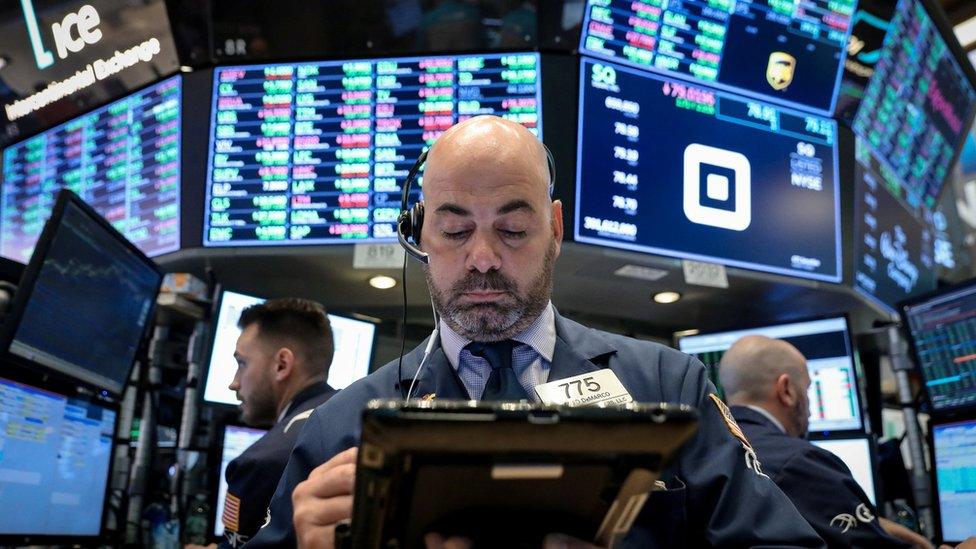Wall Street gains after US mid-terms
- Published

Analysts said the rally may be short-lived
Wall Street saw broad gains on Wednesday, as uncertainty about the outcome of the 2018 US congressional elections cleared.
Republicans expanded their majority in the Senate, while Democrats gained control of the House of Representatives.
The divided outcome, which dims chances of major new laws, offered a boon to investors wary of uncertainty.
The Dow and S&P 500 jumped 2.1%, while the Nasdaq climbed 2.6%.
Health care and technology companies led the gains, which occurred across most industries.
On the S&P 500, shares in dialysis company DaVita jumped more than 10%, after California voters turned back a measure that would have limited fees for dialysis treatment.
Shares in marijuana firms also climbed, boosted by measures that expanded legalisation in several states as well as the firing of Attorney General Jeff Sessions, who had taken a hard line against the drug.
In Asia on Thursday, markets followed Wall Street's lead.
Japan's benchmark Nikkei 225 gained almost 2% in the morning session, Hong Kong's Hang Seng was up 0.9%, while South Korea's Kospi was up 1.6%.
'Relief rally'
The gains follow several weeks of market turbulence, with falls fuelled by concerns about profit outlooks, political uncertainty, rising interest rates and trade tensions.
Shares tend to decline ahead of mid-term elections and rally after them, which had led many analysts to predict a temporary surge in prices.
But they said they expected the outcome to have little long-term effect on the trajectory for stocks, which would be shaped by the bigger concerns.
As the reality of gridlock sets in, it may limit the "relief rally", added Nigel Green, founder and chief executive of the financial consultancy deVere Group.
He said: "This will halt deregulation legislation, which in turn will hurt sectors such as banking, energy, industrials, and smaller companies that stood to gain most from looser controls."